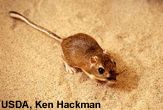Fear Could be Linked to Cancer

Young female rats afraid of new environments developed cancer tumors sooner than their more adventuresome sisters, a new study finds.
The researchers called the difference "striking."
The apprehensive rodents died sooner than others in the study because they got cancer earlier in life, on average. Importantly, however, the study found no difference in the length of time between onset of cancer and death in the two sets of rats.
Implications for humans?
The findings suggest research is needed into the possibility that human personality could predict cancer risk, the researchers write in the current issue of the journal Hormones and Behavior.
"Human studies may need to consider more basic behavior traits than those already considered," said Martha McClintock of the University of Chicago.
The scientists studied 81 female rats of a type known to develop breast and pituitary tumors. The researchers measured how far each one, at 20 days old, was willing to venture into a new, non-threatening environment.
Get the world’s most fascinating discoveries delivered straight to your inbox.
By middle age, which is 390 days for these rats, 80 percent of the fearful females had mammary cancer, compared to just 38 percent of the adventuresome rats.
"This is the first evidence that infant temperament among rats predicts the time at which these tumors appear and the age at which the females will die," said the study's lead author, Sonia Cavigelli, a former University of Chicago researcher who is now at Pennsylvania State University.
Possible reason
During puberty, the fearful rats were twice as likely as the adventuresome rats to have irregular reproductive cycles, the study showed. The cycles stabilized during adulthood but then became irregular again for the fearful rats during middle age.
The irregular cycles might account for hormonal differences linked to the development of cancer earlier, the researchers conclude.
Previous research at the university found that adventuresome males lived longer.
Robert is an independent health and science journalist and writer based in Phoenix, Arizona. He is a former editor-in-chief of Live Science with over 20 years of experience as a reporter and editor. He has worked on websites such as Space.com and Tom's Guide, and is a contributor on Medium, covering how we age and how to optimize the mind and body through time. He has a journalism degree from Humboldt State University in California.
 Live Science Plus
Live Science Plus






